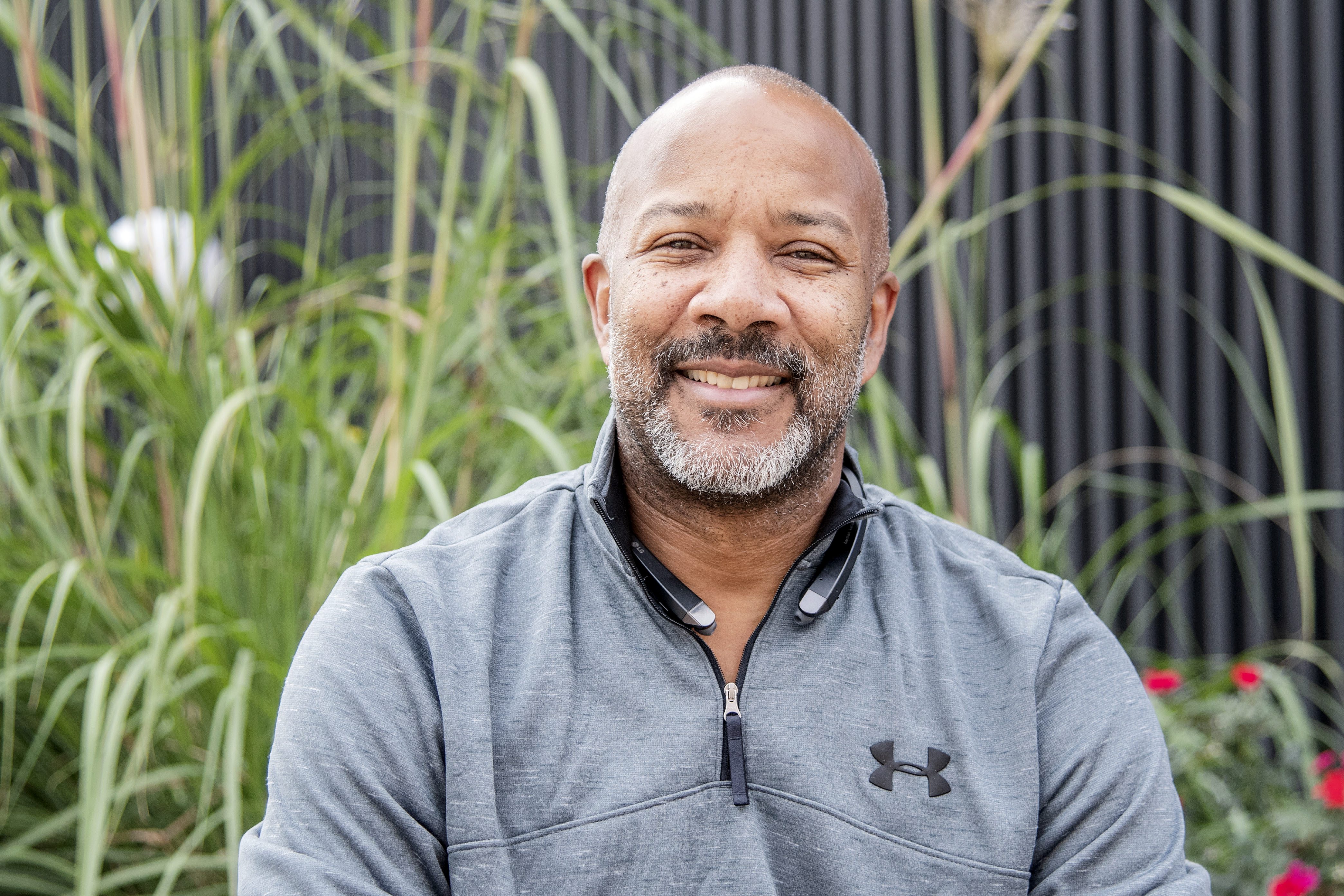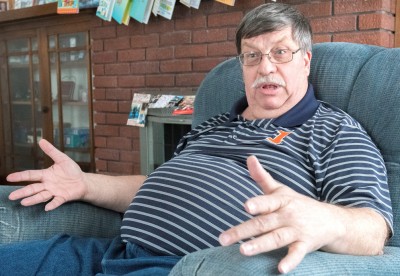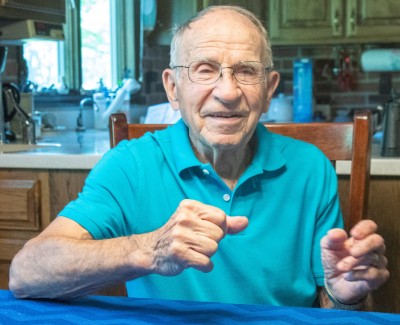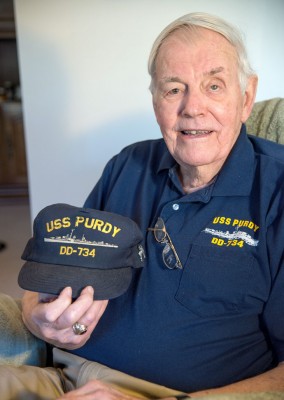Edwin Cook
By Paul Wood

Photo By Rick Danzl/The News-Gazette
CHAMPAIGN — Edwin Cook was a Desert Storm medic working with an artillery company.
“Let’s just say, I got to use a lot of my training,” he said.
The longtime VFW Post 5520 leader, 51, went everywhere from Panama to Iraq in service that began in 1987.
He played on Tommy Stewart’s last football team at Champaign Central. Cook reveres Stewart, who still ranks among the 40 winningest coaches in state history.
Cook’s father, Ebbie, is also a legend. After his own athletic career, he worked with the University of Illinois to attract minority athletes, along with brother Jerome and friend Bruce Nesbitt.
The younger Cook wasn’t ready to go back to school right after high school.
“I thought I’d choose a job that was right in the thick of it,” he said.
Early in his Army career, he was attached to engineering and helped build roads in Panama, Honduras, Costa Rica and Egypt, he said.
As a medic, his most intense experience was Desert Storm.
“That was really something for four or five months,” he said.
The artillery unit was part of the “left hook” in Gen. Norman Schwarzkopf’s six-week drive blitzkrieg to liberate Kuwait from Iraqi occupation.
The unit came up against Saddam Hussein’s Republican Guard.
“They fought admirably, but they were just up against a superior force,” Cook said.
Because his forces overwhelmed the enemy, Cook put in many IVs, but not for wounded soldiers.
“I started most of the IVs because it was so extremely hot, and the soldiers were getting dehydrated,” Cook said.
Soldiers had to wear full combat gear in temperatures as high as 122 degrees.
“Kevlar, ammo, weapons, supplies; if you sat down, somebody had to help get you back up,” he said.
Of the few life-threatening wounds he had to treat, there was no equipment for cauterizing gaping wounds.
“You’d have to be right next to a MASH unit,” he said.
One soldier was hit by a large-caliber weapon.
“I don’t think he had a chance. I did what I could,” he said.
There were no cell phones then, so soldiers communicated by pagers, he said.
“If my pager went off, I had one hour to be back on the post,” Cook said.
Cook said that at the time, upon his return, he did not feel psychic wounds: “It’s an odd thing to say, but your training allows you a quick turnaround. You get back to some routine.”
Later, he trained medics at West Point.
Cook came back to Champaign and worked for a couple of years in the lab at Carle. There were pagers there, too.
He worked for a while with the Red Cross, but eventually perceived that he had PTSD.
Cook got some help and “wanted to help other soldiers.”
That’s why the VFW is important to him, as well as its honor guard.
Do you know a veteran who could share a story about military service? Contact Paul Wood at pwood@news-gazette.com
Read more stories from local veterans:
 Steven Morenz
CHAMPAIGN — Steven Morenz, a top-secret coder during the Vietnam War, just came back from a Land of Lincoln Honor Flight …
Steven Morenz
CHAMPAIGN — Steven Morenz, a top-secret coder during the Vietnam War, just came back from a Land of Lincoln Honor Flight …
 Joseph T. Houska
WHITE HEATH — Now largely forgotten, the Suez Crisis threatened to set off a major war in the Mideast. Navy veteran Jose …
Joseph T. Houska
WHITE HEATH — Now largely forgotten, the Suez Crisis threatened to set off a major war in the Mideast. Navy veteran Jose …
 Robert Espeseth
SAVOY — Though he served in the Korean War, Navy Capt. Robert Espeseth’s closest brush with death came in Manila Bay. Es …
Robert Espeseth
SAVOY — Though he served in the Korean War, Navy Capt. Robert Espeseth’s closest brush with death came in Manila Bay. Es …